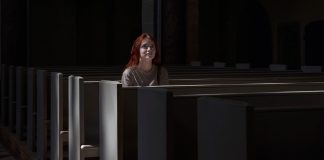Love in the Time of COVID-19
As we know all too well, life can be hard. Even in the best of times, life can be hard. But now this, a pandemic? How are we to cope?
From Charon’s skiff to the tomb of Lazarus | Part 1
Belief in life after death is present in many religions and cultures and has always been an important aid in accepting the tragic reality of death. However, rather than speaking of the intrinsic immortality of the soul, the Bible speaks of the future resurrection of the dead.
Conspiracy: from Lord of the Rings to the era of fake news
Towards the end of the Lord of the Rings trilogy, there is a final showdown between Frodo and Smeagol. Smeagol tries to regain possession of "My Precious", and when Frodo resists, Smeagol tries to strangle him. One scene in this part shows Frodo shocked that Smeagol has broken his promise and, though on the brink of death, sees fit to plead for honour:...
Things we forget about Martin Luther King Jr
Measuring more than nine metres tall, the pale granite carving of Dr King that is the centrepiece of the Martin Luther King Jr Memorial, just to the east of the National Mall in downtown Washington DC, makes it easy to forget that he was a relatively short man. His iconic likeness towers over visitors as his words carved into the stone walls around...
How can I know God as He is, rather than as I imagine Him to be?
To know God is an aspiration inherent in the rational being who recognises His existence.
Franz Hasel | The guardian angel’s weapon
In the most difficult moments of his life, Franz Hasel prayed: “Lord, if I am attacked, I will have no way to defend myself. I must trust in You to be my protector. My life is in Your hands.”
Brethren Assemblies | The history of the Brethren
The history of Brethren Assemblies begins in the 19th century, when groups of British believers began to be dissatisfied with the Anglican Church, which they saw as enslaved to the state and which they considered to be abandoning the fundamental principles of Christianity.
The pop apocalypse in movie theatres
Please, not now! Don’t come right now! Please... I suddenly opened my eyes in the darkness of my bedroom and, all of a sudden, the heat wave building up during the nightmare met the coolness of the night reality. You haven’t come yet... Thank you, God!
The young man who brought us the mirror
In the case of the well-known tension between the church and the younger generation, only one conclusion is possible. It’s not hard to figure out what we’re missing, it’s just hard to accept—on both sides.
When the face of the world changes | The epistemological significance of the Protestant Reformation
After Jesus was born—that is, in the era we call Anno Domini (AD)—the history of mankind was different from that of Christianity. As it is known, the latter was not the history of a triumphant march of Christianity towards its universalization and the unification of the human race. On the contrary, this history can rather be characterised as a manifestation of “the great...
In search of the real Jesus
The tempest in our teacup, the controversy over religious education, has stirred up anger and debate not only about the fairness of filling in a form, but also about the role and purpose of religion in children's lives.
The church: from museum to hospital
The metaphor of the church as a hospital is so popular in the neo-Protestant milieu that it seems to highlight the hypocrisy of those attending church services even more. That’s what I used to believe until one day when I witnessed the opposite with my very own eyes.
COVID-19 and our low-risk but endangered children
All COVID-19 statistics lead to the same conclusion: the young ones, our children, are at the lowest risk of getting ill or dying from the virus. That’s comforting. But the pandemic does pose a certain danger to them.
Christ in them
I notice people, and passionately collect their stories. My favourite stories include those small cracks that allow one to peek inside another soul, those moments when their voice is almost imperceptibly altered, the eyes light up for a reason I do not know, and their gestures are unexpected.
The revival of Christian morality
"With architecture we build buildings, with mechanics we build machines; is there no place among the sciences for one dedicated to human beings? Ethics is capable of working out the principles according to which a person must be 'built' in order to be truly human" (Traian Herseni).


























